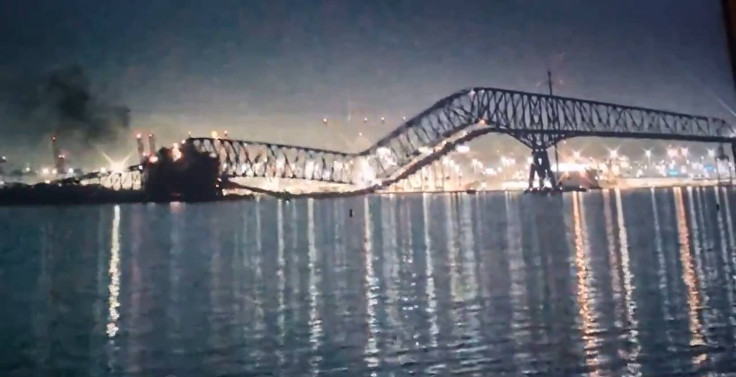The shocking collapse of the Francis Scott Key Bridge in Baltimore on Tuesday has sent shockwaves through the city and beyond, with recovery efforts under way and significant economic ramifications expected in the coming months. Here's a breakdown of the near- and long-terms effects:
Bridge Collapse and Immediate Response:
- The collapse occurred after a container ship struck one of the bridge's supports, leading to its structural failure and the bridge collapsing into the Patapsco River.
- Maryland Governor Wes Moore swiftly declared a state of emergency, mobilizing rescue efforts and assessing the damage.
- The collapse has halted vessel traffic at the Port of Baltimore indefinitely, disrupting one of the busiest shipping hubs in the United States.

Economic Impact on Port of Baltimore:
- The Port of Baltimore, renowned for handling imports and exports of cars and light trucks, has been severely impacted by the bridge collapse.
- In 2023, the port handled a record 52.3 million tons of international cargo, valued at approximately $80.8 billion, highlighting its significant economic contribution.
- Closure of the port is expected to affect over 15,000 direct jobs and more than 139,000 indirect jobs, leading to substantial income losses for workers.
Legislative Response and Economic Recovery Efforts:
- Maryland Senate President Bill Ferguson announced plans to introduce an emergency bill aimed at providing financial support to workers affected by the bridge collapse.
- Efforts are underway to expedite the rebuilding of the Key Bridge and restore port operations, with a focus on minimizing economic disruptions and restoring normalcy to the region's supply chains.
- The collapse has prompted discussions about the need for infrastructure investments and resilience planning to prevent similar incidents in the future and safeguard critical transportation networks.
Expert Insights and Forecasts:
- Experts anticipate significant disruptions to supply chains, particularly in the automotive sector, given Baltimore's status as a key port for vehicle imports and exports.
- While short-term economic impacts are expected, experts remain optimistic about the Port of Baltimore's long-term resilience and its ability to rebound from the crisis.
- Danny Ervin, a finance professor at Salisbury University, highlighted the challenges posed by the collapse but expressed confidence in the port's ability to recover and thrive in the future.
- Tinglong Dai, a professor of operations management and business analytics at the Johns Hopkins Carey Business School, discussed the extensive ripple effects of the Baltimore bridge collapse on the supply chain ecosystem and emphasized the disruption to trucking industry and intermodal transportation networks, affecting companies like Amazon, reliant on Baltimore as a crucial logistics hub. He stressed the urgency of expediting the Key Bridge's reconstruction and restoring port operations.
Consumer and Industry Implications:
- Consumers may experience delays in product deliveries and potential price increases, particularly for vehicles and goods reliant on the port for distribution.
- Major companies with logistics operations in Baltimore, such as Amazon, FedEx, and BMW, are reassessing their supply chain strategies and contingency plans to mitigate disruptions.
While the collapse of the Francis Scott Key Bridge has dealt a significant blow to Baltimore's economy and supply chains, efforts are underway to expedite recovery and minimize long-term economic impacts. The incident underscores the importance of robust infrastructure and proactive risk management in safeguarding critical transportation networks and supporting economic resilience.







